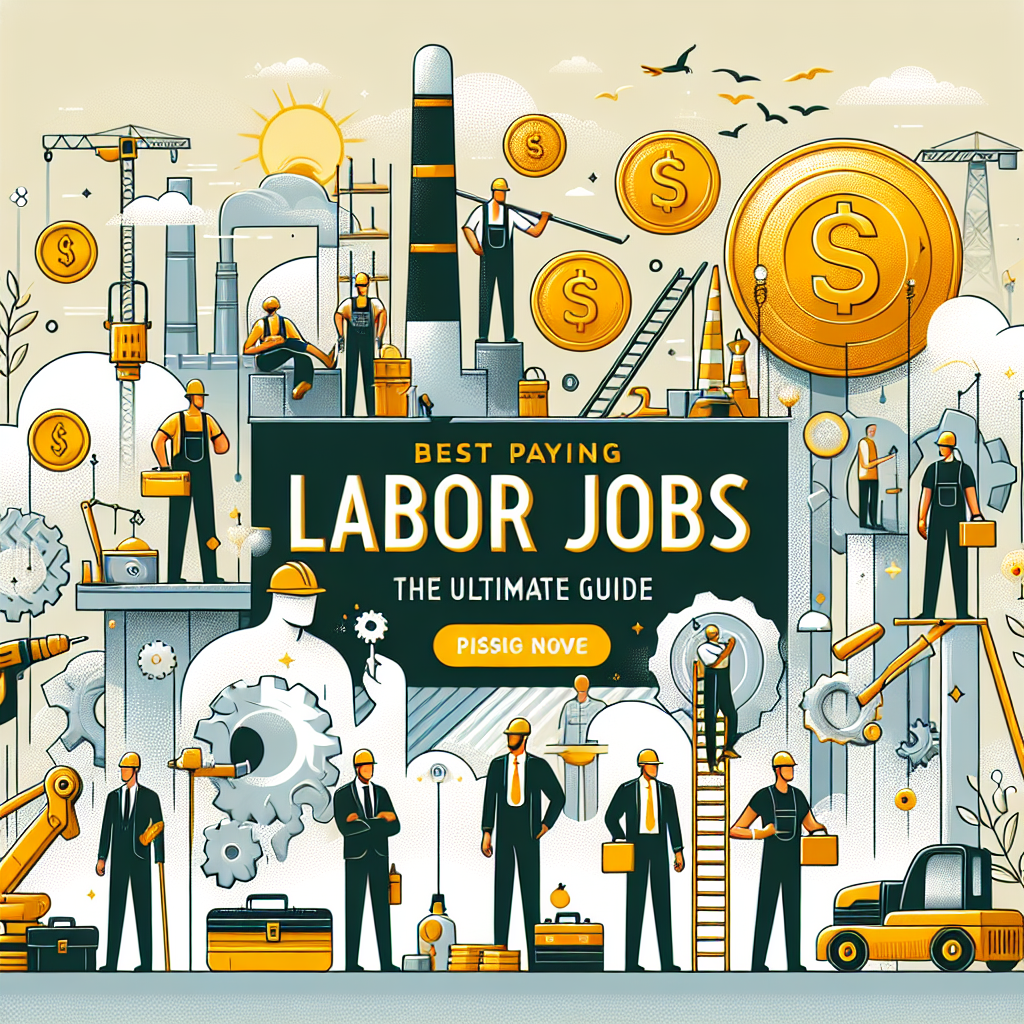Best Paying Labor Jobs: The Ultimate Guide offers a practical roadmap for workers who prefer hands-on roles and want to maximize earnings without necessarily following a traditional four-year degree path. This article covers in-demand trades, where premium pay comes from specialized skills, certifications, or high-risk and remote work, and how to position yourself to land the best opportunities.
Highest paying labor jobs and where they’re concentrated
Many of the top-paying labor occupations fall within construction, energy, transportation, and specialized industrial sectors. Jobs such as elevator installers and repairers, power linemen, offshore oil and gas technicians, commercial pilots for industrial operations, and heavy equipment operators often pay well because they require certification, technical expertise, safety training, and sometimes long or hazardous shifts.
Why these roles command higher pay
Compensation in labor work typically reflects a mix of factors: technical skill level, licensing or apprenticeship completion, union-negotiated wages, geographic demand (boom regions pay more), and the physical risk or inconvenience of the job (out-of-town travel, night work, or dangerous environments). Investing time in accredited training or apprenticeships can lead to rapid pay increases.
Top categories and sample careers
Below is a quick guide to categories where high-paying labor jobs are common and the kinds of roles to explore.
- Construction and heavy equipment — crane operators, heavy equipment mechanics, and pile drivers.
- Electric power and utilities — lineworkers, substation technicians, and power plant operators.
- Energy and extraction — offshore rig workers, drilling technicians, and well service operators.
- Skilled trades and fabrication — pipefitters, boilermakers, industrial welders, and ironworkers.
- Transport and specialized logistics — commercial truck drivers for specialized loads and heavy-haul operators.
How to break in and accelerate earnings
Start with accredited training, a vocational program, or an apprenticeship. Many employers value hands-on experience and certifications such as commercial driver’s licenses (CDL), welding certifications, or electrical journeyman credentials. Union membership in many trades can accelerate wage growth and provide benefits. For students or those seeking entry-level placements, curated job boards and campus resources can help locate apprenticeships, internships, and short-term contracting roles — a useful resource to explore is the ultimate guide to job boards for college students in the USA (free and paid options), which lists platforms and strategies for finding early-career labor work.
Skills, certifications, and safety that matter most
Employers prioritize candidates who can demonstrate safe work habits, reliability, and technical competence. Certifications in OSHA safety standards, confined-space entry, and specialized equipment operation are often required for higher-pay roles. Soft skills such as teamwork, time management, and the ability to follow technical plans also increase prospects for promotion and overtime opportunities.
Where to find reliable occupational data
For an overview of employment outlook and industry trends in construction and extraction occupations, the U.S. Bureau of Labor Statistics provides detailed profiles and projections that can inform career decisions: BLS Occupational Outlook for construction and extraction.
Practical advice to increase income quickly
Consider these steps to boost earnings within a few years:
- Complete an apprenticeship or accredited certificate program rather than relying solely on on-the-job learning.
- Obtain industry-recognized safety and technical certifications to qualify for higher-wage roles.
- Work in high-demand regions or be willing to travel for project-based contracts that offer premium pay.
- Join a trade union if it provides better wages, training, and job placement services for your field.
Short FAQ
Do I need a college degree to access high-paying labor jobs?
No. Many high-paying labor professions prioritize vocational training, apprenticeships, certifications, and field experience over a traditional college degree. Hands-on skill and safety credentials are often more important.
Can apprenticeships lead to high wages quickly?
Yes. Apprenticeships combine paid work with training; after completing an apprenticeship, many workers see notable wage increases and gain qualifications that open doors to higher-paying positions or supervisory roles.
How can I find entry-level positions near me?
Check local trade schools, union halls, community job centers, and specialized job boards. For students and newcomers, online guides and curated platforms can point to internship and part-time openings that build experience quickly.



